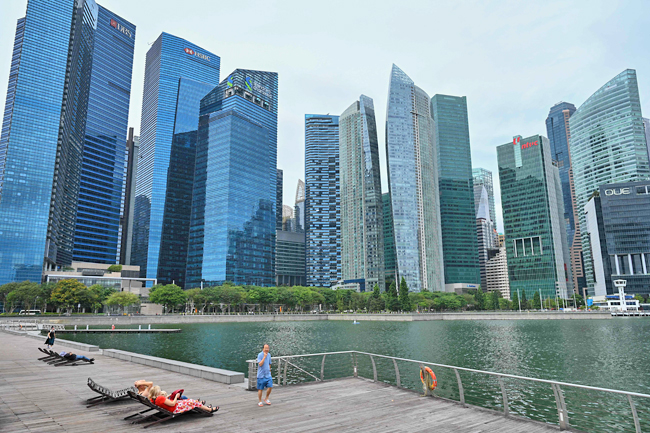ANN/THE STRAITS TIMES – A recent social media post by United States (US) President Donald Trump has hinted at the possibility of new tariffs on imports from Singapore, raising concerns over potential trade implications.
Just days after announcing his plan to impose reciprocal tariffs on countries that levy higher import duties on US goods, Trump wrote on Truth Social, “For purposes of this US policy, we will consider countries that use the VAT (value-added tax) system, which is far more punitive than a tariff, to be similar to that of a tariff.”
VAT is a consumption tax applied at various stages of the supply chain in around 175 countries. In Singapore, it is equivalent to the Goods and Services Tax (GST), which is set at nine per cent and applies to both domestic sales and imports – including those from the US.
Trade between the US and Singapore remains significant. According to the Office of the US Trade Representative, total US-Singapore goods trade reached an estimated USD89.2 billion (SGD119.5 billion) in 2024. US exports to Singapore stood at USD46 billion, an 8.4-per-cent increase from 2023, while imports from Singapore rose 5.6 per cent to USD43.2 billion. This resulted in a US goods trade surplus of USD2.8 billion – an 84.8-per-cent surge from the previous year.
While Trump’s remarks do not constitute an official policy change, they signal a potential shift in US trade strategy that could impact economic ties with key partners, including Singapore.
The surplus enjoyed by the US with Singapore is the diametric opposite of the trade deficits with many countries that Trump has defined as unfair to the US. Hence, it is the main reason why Singapore is confident that its exports to the US would avoid any tariffs.
The Straits Times has contacted Singapore’s Ministry of Trade and Industry for comments on Trump’s post.
Foreign Minister Vivian Balakrishnan, speaking in Parliament, said: “I do not anticipate us being on the hit list for direct tariffs, because… the US has a surplus as far as the trade balance with us is concerned.”
Also, since 2004, when the US-Singapore Free Trade Agreement (USSFTA) came into force, bilateral trade has tripled even as the US has consistently maintained a surplus with Singapore.
The USSFTA said the US International Trade Administration ensures American exports to Singapore remain duty-free, with very few exceptions, such as excise duties on alcoholic beverages and tobacco due to social reasons.
Singapore also imposes excise duties on motor vehicles and certain petroleum products that are chemicals listed under the Rotterdam Convention as pollutants. But these duties are on imports from all countries, not just the US. However, this latest salvo on VAT could shatter the confidence on avoiding tariffs most private analysts and policymakers in Singapore had so far.
“Wow, Trump is certainly full of surprises!” said chief economist and head of treasury research and strategy at OCBC Bank Selena Ling.
By widening his net to target all countries that have VAT or similar consumption taxes, Trump appears to be getting close to the universal tariff he proposed during his election campaign in 2024.
Trump had promised to impose a 25-per-cent tariff on US imports from all its trading partners, whether they have an FTA or not.
For China, he had vowed a tariff rate of 60 per cent.
So far, Trump has announced plans to impose reciprocal tariffs on all levies on US imports, subject to a study due for completion by April 1. He has also raised tariffs on US imports from China by 10 per cent and levied a 25-per-cent tax on all steel and aluminium imports.
Ling said, “If Trump is successful in implementing this measure, it suggests that the US is likely extending its extraterritorial policy reach. And yes, Singapore may be theoretically caught, albeit the FTA and the trade deficit with the US are saving graces.”
There is also the composition of Singapore’s exports to the US, which may help the Republic skirt Trump’s trade war.




